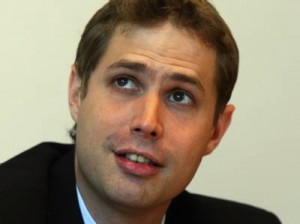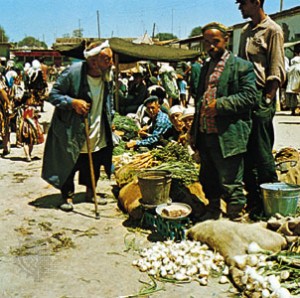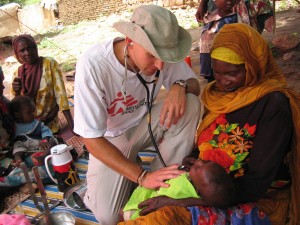“How strange that technology has brought us into a world where there are no fixed places anymore. You speak out of nowhere [on cellphones and the internet], you can be anywhere, and because nothing can be checked, anything you choose to imagine is, at bottom, true.”
 Described as a “prodigy,” thirty-five-year-old Daniel Kehlmann, with German and Austrian citizenship, has already published four novels and a short story collection, winning the 2005 Candide Award, the 2006 Kleist Award, and the 2008 Thomas Mann Award. His novel Measuring the World has sold an incredible 1.5 million copies in Europe alone, and his works have been translated into forty languages. This novel can only add to his luster. It is brilliant—clever, thoughtful, satirical, ironic, humorous, and beautifully structured within its experimental style.
Described as a “prodigy,” thirty-five-year-old Daniel Kehlmann, with German and Austrian citizenship, has already published four novels and a short story collection, winning the 2005 Candide Award, the 2006 Kleist Award, and the 2008 Thomas Mann Award. His novel Measuring the World has sold an incredible 1.5 million copies in Europe alone, and his works have been translated into forty languages. This novel can only add to his luster. It is brilliant—clever, thoughtful, satirical, ironic, humorous, and beautifully structured within its experimental style.
Non-stop fun at the same time that it deals with important existential issues, Kehlmann’s collection of nine seemingly unrelated stories becomes a labyrinth of overlapping relationships, some of them within the plots of the stories, some in the surprising connections among characters, some through his imagery (and one repeating character/symbol), and some through his development of his themes. Kehlmann is exploring the effects of technology on our perceptions of reality, and while this may sound esoteric and ponderous, it is done within a lively assortment of stories in which the characters and points of view are not only realistic and satiric—but often wickedly funny.

Kehlmann raises questions about what happens to our thinking about the real world when we spend hours of our real lives “communicating” on the internet, often in chat rooms using monikers instead of real names, where we are able to create whole new fictional lives for ourselves. We converse on cellphones, often giving on-the-spot descriptions of what we are seeing and feeling. We record cellphone videos, and we often post these on YouTube, allowing the world to share them. How “real” are all these versions of reality? And how “real” is the fame that often accompanies our recorded achievements in film, TV, and literature? Where does reality begin and end? And what does fame really mean?
Kehlmann’s nine stories all deal with the ironies of people caught between reality and fiction. In “Voices” Kehlman tells the story of Ebling, who is mistakenly assigned the private number of famous actor Ralf Tanner when he buys a new cellphone. When he begins to answer as the actor, “It was as if he had a doppelganger, his representative in a parallel universe.” In “The Way Out,” Ralf Tanner the actor illustrates what has happened to his life since Ebling started answering his phone calls, his professional career and personal life in ruins. He participates in a disco contest which awards prizes to the person who most resembles someone famous, but is criticized because his body language is “not correct” for the actor Ralf Tanner. His use of a false name ironically gives him a chance at a real life. In “How I Lied and Died,” the telecom supervisor of the man who mistakenly gave out Ralf’s cellphone number becomes caught up in a lover’s triangle in which he is in love with two women. He lies to both, creating fictional new “lives” for himself through his lies. “It was as if I really had left another me back there.”

Market in Uzbekistan
Four stories are about writers. Miguel Auristos Blanco, the author of popular self-help books about serenity, inner grace, and the meaning of life, is famous for his book Ask the Cosmos, It will Speak. (A gun-lover, he is also the author of A Steady Hand Makes a Calm Spirit.) Then he receives a letter from an abbess at a Carmelite Convent asking him why suffering exists, why loneliness, why God is so distant. As he contemplates an answer, he considers the effects of what he says on both his own life and on his fame. Author Maria Rubinstein substitutes for another writer at a conference in Uzbekistan or Turkmenistan (it doesn’t seem to make a difference to the participants) and cannot make anyone believe she really is who she says she is. Her novel Dark Rain, available in the country, does not contain her picture to prove her identity.
The third author, Leo Richter, whose stories about Dr. Lara Gaspard have brought him fame, is now living with Elisabeth, a real doctor with Doctors Without Borders who does not want to tell him anything about her life because she does not want to appear in any of his stories.

Physician from Doctors Without Borders in central Africa
When Leo accompanies Elisabeth to equatorial Africa to investigate the ominous disappearance of three doctors, the limitations of this fiction writer become obvious. In my favorite bit of dialogue from the whole book, Leo asks one of the veteran physicians, “Have you read Hemingway? I think about him all the time here. Can you work here without thinking of him?” “Yes,” the weary physician replies. “Easily.”
Kehlmann writes like a sorcerer here, hiding fundamental metaphysical ideas within sentences which are simple, concise, and straightforward and within stories which are exciting to read. Kehlmann never lets the reader forget that his own stories, too, must be evaluated—he is, after all, a real person telling fictional stories which reflect real themes using fictional characters, some of whom are fictitiously involved in writing books and some of whom are involved in telecommunications which affect their readers’ real lives. “Stories within stories within stories. You never know where one ends and another begins! In truth they all flow into one another.” One of the most surprising and satisfying books of the year for me. (Near the top of my Favorites List for 2010)
Note: Doctors without  Borders (Medecins Sans Frontieres) is described on Wiki here: http://en.wikipedia.org/ Their Facebook video may be found here: www.youtube.com. The rating for this organization as a philanthropy is here: www.charitynavigator.org Their logo appears at the end of the review.
Borders (Medecins Sans Frontieres) is described on Wiki here: http://en.wikipedia.org/ Their Facebook video may be found here: www.youtube.com. The rating for this organization as a philanthropy is here: www.charitynavigator.org Their logo appears at the end of the review.
Photos, in order: The photo of Daniel Kehlmann is here: www.fr-online.de
A market in Uzbekistan is from www.britannica.com
http://web.mit.edu Dr. Jonathan Spector examines a child in central Africa. He has worked with Doctors Without Borders in Angola, Sudan, and Liberia.
